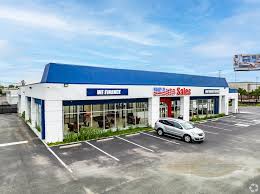Nashville Businesses For Sale : 5 Exclusive Opportunities

Nashville, renowned for its vibrant culture and booming economy ” Nashville Businesses For Sale” , presents a plethora of opportunities for aspiring entrepreneurs and seasoned investors alike. In this article, we delve into the realm of Nashville businesses for sale, exploring key insights, practical tips, and essential considerations to navigate this dynamic market successfully. Whether you’re looking to embark on a new venture or expand your business portfolio, understanding the nuances of buying businesses in Nashville is crucial for making informed decisions and maximizing your potential for success. Join us as we unravel the intricacies of the Nashville business landscape and uncover valuable strategies for acquiring and thriving in this thriving market.
Introduction to the Nashville Businesses For Sale

Nashville, often referred to as “Music City,” is much more than just a hub for the entertainment industry. With its diverse economy, strategic location, and supportive business environment, Nashville has emerged as a hotspot for entrepreneurs, investors, and businesses of all sizes.
Economic Overview: Nashville’s economy is characterized by its robust growth across various sectors. While the music industry remains a prominent part of the city’s identity, Nashville has also developed strong healthcare, technology, finance, and manufacturing sectors. This diversification has helped the city weather economic downturns and maintain steady growth.
Business Climate: The business climate in Nashville is favorable for both startups and established enterprises. The city boasts low taxes, a pro-business regulatory environment, and a skilled workforce. Additionally, Nashville’s central location within the United States makes it an attractive location for businesses looking to access markets across the country.
Entrepreneurial Spirit: Nashville has a thriving entrepreneurial ecosystem, with numerous resources and support networks available to help startups and small businesses succeed. From co-working spaces and incubators to mentorship programs and networking events, aspiring entrepreneurs have access to the tools and guidance they need to bring their ideas to life.
Real Estate Market: The real estate market in Nashville is dynamic, with both residential and commercial properties experiencing strong demand. This demand is driven by population growth, economic expansion, and the city’s reputation as a desirable place to live and work. For businesses looking to establish a presence in Nashville, navigating the real estate market effectively is essential.
Cultural and Quality of Life Factors: Beyond its economic opportunities, Nashville offers a high quality of life and a vibrant cultural scene. The city is known for its live music venues, world-class dining options, and outdoor recreational activities. This appealing lifestyle factor attracts talent from across the country and contributes to the city’s overall economic vitality.
Understanding the Dynamics of Buying a Nashville Businesses For Sale
Buying a business in Nashville can be a rewarding endeavor, but it requires careful consideration and understanding of the unique dynamics at play in the local market. In this section, we explore the key factors and considerations involved in the process of purchasing a business in Nashville.
Market Trends and Opportunities: Before diving into the process of buying a business, it’s essential to research and understand the current market trends and opportunities in Nashville. This includes identifying industries that are experiencing growth, as well as emerging sectors with potential for future expansion. By staying informed about market trends, buyers can identify lucrative investment opportunities and make informed decisions about which businesses to pursue.
Financial Considerations: Financial due diligence is a critical aspect of buying a business in Nashville. Buyers need to thoroughly review the financial records of potential acquisition targets, including revenue, expenses, cash flow, and profitability. Additionally, buyers should consider the availability of financing options, such as loans or investor capital, to fund the purchase of the business.
Legal and Regulatory Compliance: Navigating the legal and regulatory landscape is another important consideration when buying a business in Nashville. Buyers must ensure that the business complies with all applicable laws and regulations, including licensing requirements, zoning ordinances, and employment laws. Engaging legal counsel experienced in business acquisitions can help buyers navigate these complexities and avoid potential legal pitfalls.
Competitive Analysis: Understanding the competitive landscape is essential for evaluating the viability of a potential business acquisition in Nashville. Buyers should assess the strengths and weaknesses of competing businesses in the same industry or market segment, as well as the barriers to entry and competitive advantages of the target business. This analysis can help buyers identify opportunities for differentiation and growth within the marketplace.
Cultural Fit and Integration: Beyond financial and legal considerations, buyers should also evaluate the cultural fit and integration potential of the target business. This includes assessing the company culture, leadership team, and employee dynamics to ensure alignment with the buyer’s own values and vision for the business. Building a cohesive and collaborative team is essential for successfully integrating the newly acquired business into the buyer’s existing operations.
Key Industries and Sectors in Nashville Businesses For Sale
Nashville’s business landscape is characterized by a diverse array of industries and sectors, each contributing to the city’s economic vibrancy and growth. In this section, we explore some of the key industries and sectors that drive Nashville’s economy and present opportunities for business acquisition.
Healthcare and Life Sciences: Nashville is home to a thriving healthcare and life sciences sector, anchored by leading hospital systems, research institutions, and healthcare-related businesses. With renowned healthcare providers like Vanderbilt University Medical Center and HCA Healthcare headquartered in the city, Nashville has established itself as a national hub for healthcare innovation and excellence. Opportunities for business acquisition in this sector range from medical practices and specialty clinics to healthcare technology companies and pharmaceutical manufacturers.
Music and Entertainment: As the “Music City,” Nashville is globally recognized for its music and entertainment industry. The city is home to major record labels, music publishing companies, recording studios, and live music venues, making it a magnet for aspiring musicians, industry professionals, and music enthusiasts alike. Business acquisition opportunities in this sector may include music production companies, event management firms, and entertainment venues seeking new ownership or expansion opportunities.
Technology and Innovation: Nashville’s technology and innovation ecosystem has experienced significant growth in recent years, fueled by a skilled workforce, supportive entrepreneurial community, and access to capital. The city is home to a diverse mix of technology companies, startups, and research institutions, driving innovation across industries such as healthcare, finance, education, and transportation. Business acquisition opportunities in the technology sector may include software development firms, cybersecurity companies, and technology-enabled service providers seeking strategic partnerships or exits.
Hospitality and Tourism: Nashville’s hospitality and tourism industry is a major economic driver, attracting millions of visitors each year with its vibrant music scene, cultural attractions, and southern hospitality. The city boasts a wide range of hospitality businesses, including hotels, restaurants, bars, and tourist attractions, catering to both leisure and business travelers. Business acquisition opportunities in this sector may include boutique hotels, bed and breakfasts, restaurants, and event venues seeking new ownership or investment.
Manufacturing and Logistics: Nashville’s strategic location at the crossroads of major interstates and rail lines has made it a hub for manufacturing and logistics companies serving regional and national markets. The city’s business-friendly environment, access to transportation infrastructure, and skilled workforce have attracted a diverse range of manufacturing businesses, including automotive, aerospace, and consumer goods manufacturers. Business acquisition opportunities in this sector may include manufacturing facilities, distribution centers, and logistics companies looking to capitalize on Nashville’s strategic advantages.
Factors Influencing the Sale of Businesses in Nashville

The decision to sell a business in Nashville is influenced by a variety of factors, including market conditions, industry trends, financial considerations, and personal circumstances. In this section, we delve into the key factors that influence the sale of businesses in Nashville and how they impact the sales process.
Market Conditions: Market conditions play a significant role in determining the timing and success of a business sale in Nashville. Factors such as economic growth, industry performance, and buyer demand can affect the valuation and attractiveness of a business to potential buyers. In a strong market with high demand for businesses, sellers may be able to command higher prices and negotiate more favorable terms. Conversely, in a weak market with low demand, sellers may need to adjust their expectations and be more flexible in their negotiations.
Industry Trends: Industry trends and dynamics can also impact the sale of businesses in Nashville. Industries experiencing growth and innovation may attract greater interest from buyers, driving up demand and valuations. Conversely, industries facing challenges or disruption may encounter difficulty finding buyers willing to invest. Sellers should carefully assess the current state and future prospects of their industry when considering a business sale and position their business accordingly to appeal to potential buyers.
Financial Performance: The financial performance of a business is a critical factor that influences its saleability and valuation. Buyers typically look for businesses with strong revenue growth, stable cash flow, and healthy profit margins. Sellers can enhance the attractiveness of their business by demonstrating a track record of financial success, implementing cost-saving measures, and improving operational efficiency. Additionally, sellers should ensure their financial records are accurate, up-to-date, and transparent to instill confidence in potential buyers during the due diligence process.
Owner’s Objectives: The personal circumstances and objectives of the business owner also play a significant role in the decision to sell a business in Nashville. Factors such as retirement planning, health issues, family considerations, and lifestyle changes can all influence a business owner’s decision to exit their business. Sellers should carefully consider their own goals and priorities when contemplating a business sale and seek professional guidance to develop a strategic exit plan that aligns with their objectives.
Legal and Tax Considerations: Legal and tax considerations can impact the sale process and outcomes for both buyers and sellers. Sellers should consult with legal and tax advisors to understand the implications of a business sale on their personal finances, tax liabilities, and legal obligations. Proper planning and structuring of the sale transaction can help minimize taxes, mitigate legal risks, and ensure a smooth transition of ownership. Buyers should also conduct thorough due diligence to identify any potential legal or tax issues that may affect the transaction.
Where to Find Businesses for Sale in Nashville
Finding Nashville Businesses For Sale requires a strategic approach and access to various resources and channels. In this section, we explore some of the key avenues and platforms where buyers can search for businesses for sale in the Nashville area.
Business Brokerage Firms: Business brokerage firms specialize in facilitating the sale and purchase of businesses. These firms typically have listings of businesses for sale across various industries and sectors, including Nashville. Buyers can engage with business brokers to gain access to exclusive listings, receive guidance throughout the acquisition process, and negotiate favorable terms with sellers. Popular business brokerage firms operating in Nashville include Sunbelt Business Brokers, Transworld Business Advisors, and VR Business Brokers.
Online Marketplaces: Online marketplaces are a convenient and accessible platform for buyers to search for businesses for sale in Nashville. Websites such as BizBuySell, BizQuest, and BusinessesForSale.com feature listings of businesses for sale by owners, brokers, and intermediaries. Buyers can search for businesses based on location, industry, size, and price range, and contact sellers directly to express interest and initiate discussions. These platforms also provide valuable resources and tools for buyers, including valuation calculators, due diligence checklists, and financing options.
Industry Associations and Networks: Industry associations and networks can be valuable resources for buyers seeking businesses for sale in specific sectors or industries. These organizations often have membership directories, networking events, and industry publications where businesses for sale may be advertised or promoted. By networking with industry peers and professionals, buyers can gain insights into potential acquisition opportunities, industry trends, and market dynamics specific to their area of interest. Examples of industry associations in Nashville include the Nashville Area Chamber of Commerce and the Tennessee Medical Association.
Professional Advisors and Consultants: Professional advisors and consultants, such as accountants, lawyers, and business consultants, can provide valuable assistance to buyers in their search for businesses for sale in Nashville. These professionals often have networks and connections within the local business community and may be aware of businesses that are discreetly listed for sale or not actively marketed to the public. Buyers can leverage their relationships with professional advisors to gain access to exclusive opportunities, receive expert guidance on valuation and due diligence, and navigate the complexities of the acquisition process with confidence.
Networking and Referrals: Networking and referrals are powerful tools for uncovering hidden gems and off-market opportunities in the Nashville business market. By building relationships with other business owners, professionals, and community leaders, buyers can tap into a vast network of potential sellers and intermediaries who may be aware of businesses for sale or considering a transition of ownership. Attending industry events, networking mixers, and business conferences in Nashville can provide valuable opportunities to connect with key stakeholders and uncover potential acquisition targets through word-of-mouth referrals and introductions.
Assessing the Financial Viability of Potential Business Opportunities

Assessing the financial viability of potential business opportunities is a critical step in the process of buying a business in Nashville. In this section, we explore the key financial considerations and metrics that buyers should evaluate when assessing potential acquisition targets.
Financial Statements: One of the first steps in assessing the financial viability of a potential business opportunity is to review the company’s financial statements. This includes the income statement, balance sheet, and cash flow statement, which provide insights into the company’s revenue, expenses, assets, liabilities, and cash flow over a specified period. Buyers should analyze these financial statements to assess the company’s profitability, liquidity, solvency, and overall financial health.
Revenue and Profitability: Buyers should carefully evaluate the company’s revenue and profitability trends to determine its earning potential and sustainability. Key metrics to consider include revenue growth rate, gross profit margin, net profit margin, and earnings before interest, taxes, depreciation, and amortization (EBITDA). Buyers should assess the company’s historical financial performance and forecast future revenue and profit projections based on market trends, industry dynamics, and growth opportunities.
Cash Flow: Cash flow is a critical indicator of a company’s financial strength and operational efficiency. Buyers should analyze the company’s cash flow statement to assess its ability to generate cash from its core business operations, cover operating expenses, service debt obligations, and reinvest in growth initiatives. Positive and consistent cash flow is essential for sustaining operations, funding growth, and generating returns for investors.
Assets and Liabilities: Buyers should conduct a thorough review of the company’s assets and liabilities to understand its financial position and risk profile. This includes assessing the company’s tangible assets (such as property, equipment, and inventory) and intangible assets (such as intellectual property, patents, and goodwill), as well as its outstanding liabilities (such as debt, accounts payable, and accrued expenses). Buyers should also consider any contingent liabilities or legal claims that could impact the company’s financial stability and valuation.
Valuation and Pricing: Determining the fair market value of a business is a critical aspect of assessing its financial viability and negotiating a purchase price. Buyers can use various valuation methods, such as the discounted cash flow (DCF) method, comparable company analysis (CCA) method, and asset-based valuation method, to estimate the value of the business based on its financial performance, growth prospects, and risk profile. Buyers should also consider factors such as industry multiples, market conditions, and strategic synergies when determining an appropriate purchase price for the business.



Leave a Reply
You must be logged in to post a comment.